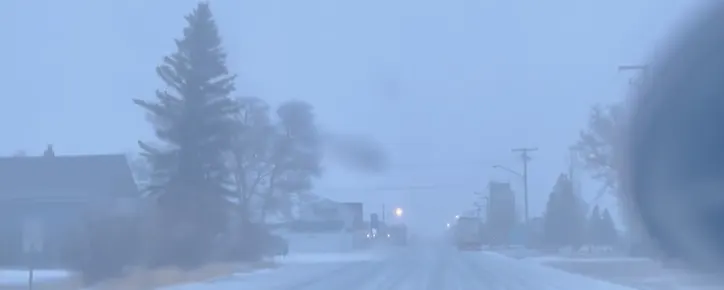
Dangerously cold air freezes Prairies, blowing snow a travel threat
Extreme cold will tighten its grip on the Prairies this week, with dangerously cold temperatures into the new year. Heavy, blowing snow will persist on parts of the southern Prairies on Monday.
It’s going to be a rough week on the Prairies as a spell of extremely cold temperatures spreads over the region. Monday will see some of the coldest temperatures we’ve seen this season in Alberta. The deep freeze will slide east through the week, keeping the Prairies frigid into the new year. Heavy snow continues for the southern Prairies on Monday, with blowing snow impeding travel in spots. More on the dangerous cold and snow, below.
Visit our Complete Guide to Winter 2022 for an in-depth look at the Winter Forecast, tips to plan for it, and much more!
MONDAY: EXTREME COLD AND HEAVY, BLOWING SNOW
Monday is shaping up to be a pure winter day across the Prairies as an intense blast of Arctic air settles in and a burst of heavy snow spreads over southern parts of the region.
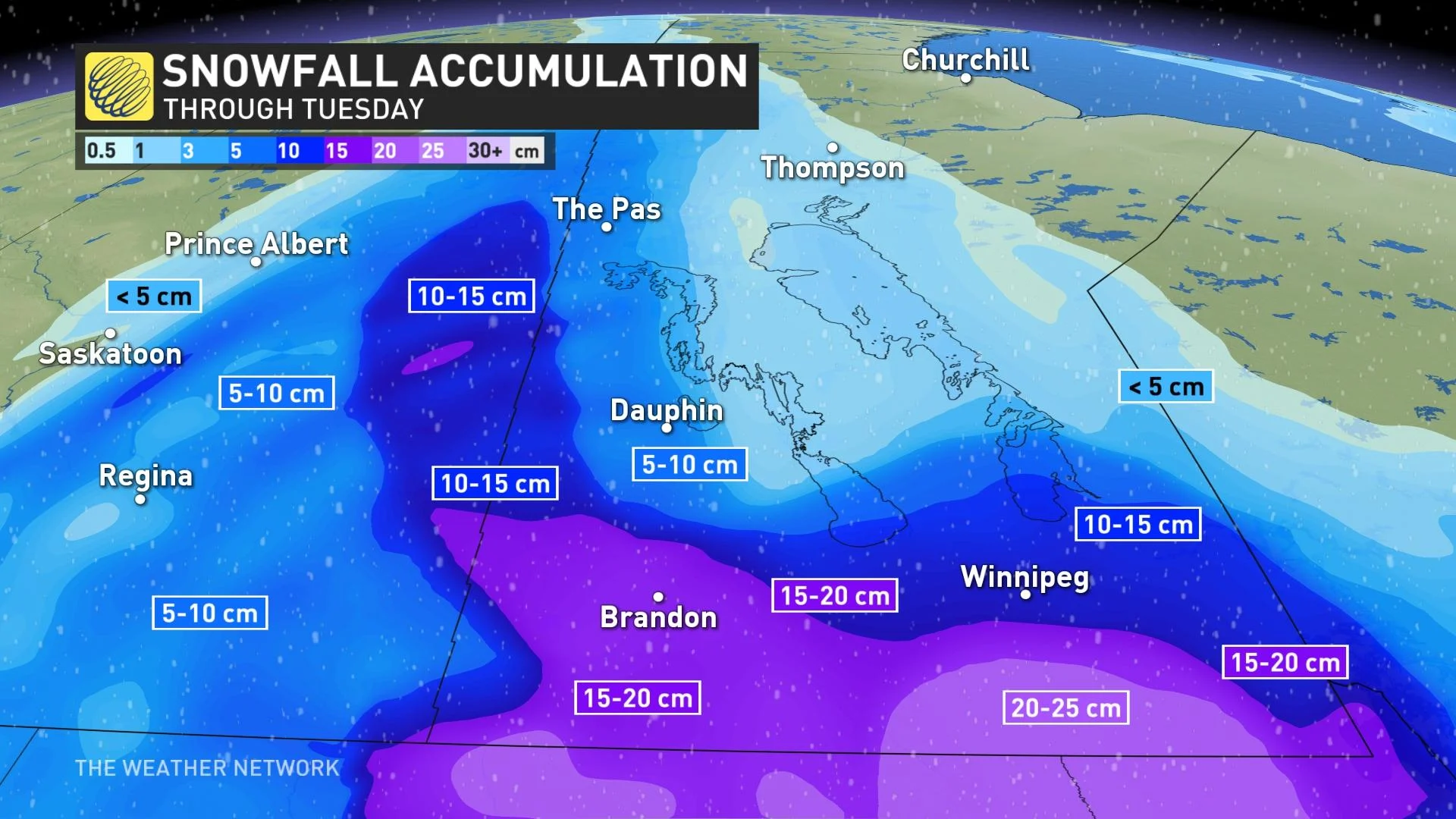
A slug of moisture from a stateside low will continue producing heavy snow over southern portions of Saskatchewan and Manitoba through the day on Monday. A quick burst of snow associated with another system skirting by on Tuesday will add to snowfall totals. Widespread storm total accumulations of 15-25 cm are expected, with locally higher amounts possible.
Bitterly cold air can’t hold much moisture, so this is a very light and fluffy snow. Winds gusting as high at 60 km/h will easily lead to blowing and drifting snow, which will remain a problem even after the snow stops falling. Lower visibility is likely during times of blowing snow. Travel conditions may change rapidly over short distances.
Snow will gradually end from west to east through the day on Monday.
Folks on the Prairies who missed out on the heavy snow aren’t exactly having a picnic on Monday.
MUST SEE: Canada records temperature below -51°C for the first time in eight years
Some of the world’s coldest air will be parked over Central Canada early this week. Environment and Climate Change Canada (ECCC) issued extreme cold warnings for a vast swath of the Prairies on Monday, including the entire province of Alberta.

Monday is on track to register as one of Edmonton’s coldest-ever December days on record. High temperatures on Monday won’t climb out of the -30s across northern Alberta, with wind chill values easily sinking below -40 at times. The forecast high in Edmonton is just -29°C with a feels-like value of -36.
This is dangerously cold air, even for folks acclimated to extreme winter weather. A relatively benign event like a vehicle breaking down could easily turn into a life-threatening ordeal when temperatures are this cold. Intensely cold air paired with even colder wind chill values will make it unsafe to spend much time outdoors without the proper protection and knowledge.
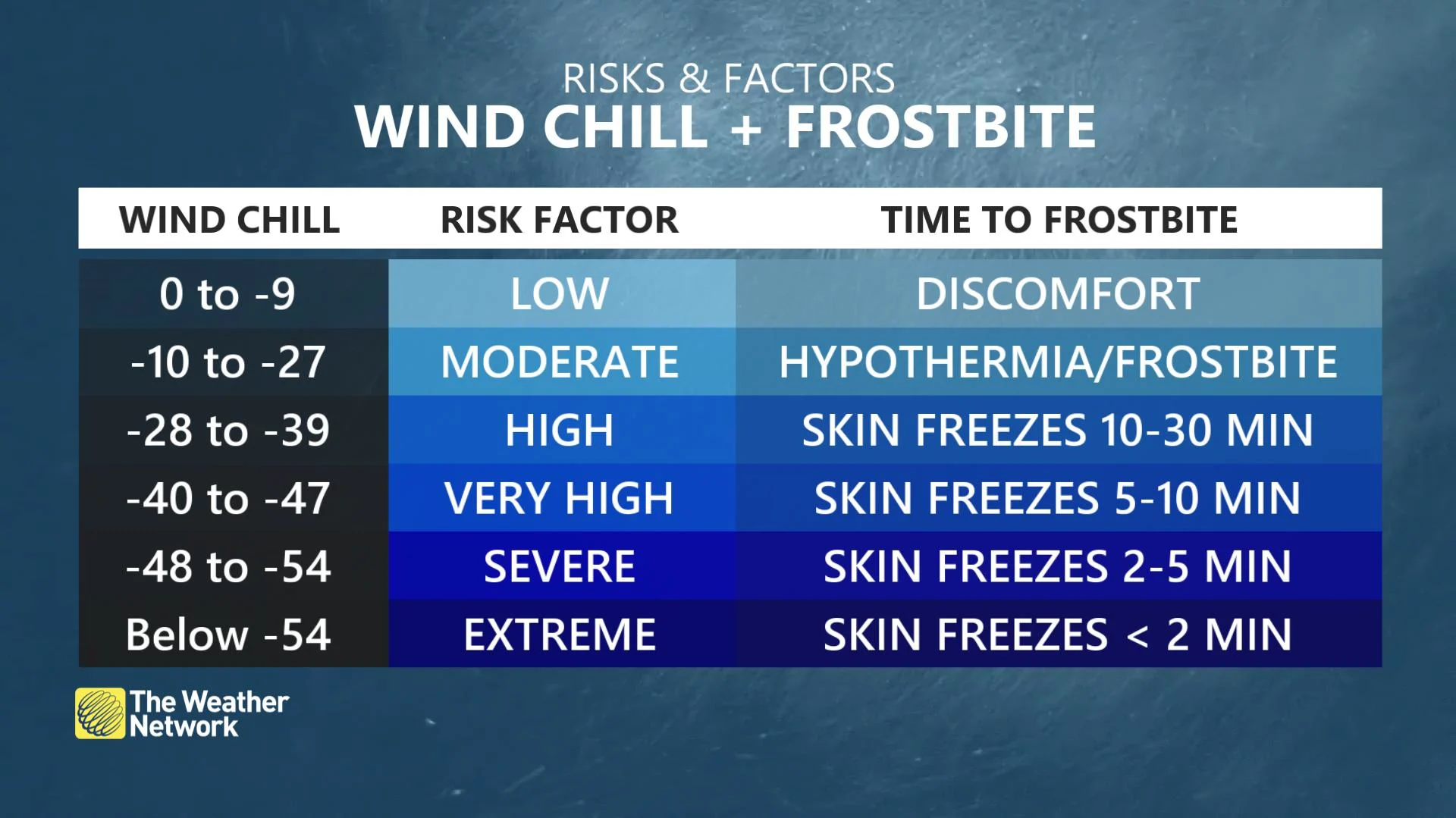
Remain mindful of the signs of frostbite and hypothermia. With wind chill values dipping into the -30s and -40s, it can take as little as 5-10 minutes for exposed skin to freeze in this Arctic airmass, and hypothermia can set in not long after.
TUESDAY AND BEYOND: INTENSE COLD SLIDES EAST ACROSS THE PRAIRIES
The deepest reservoir of cold air will slide into Saskatchewan by Tuesday, spreading high temperatures around -30°C to Prince Albert and Saskatoon.
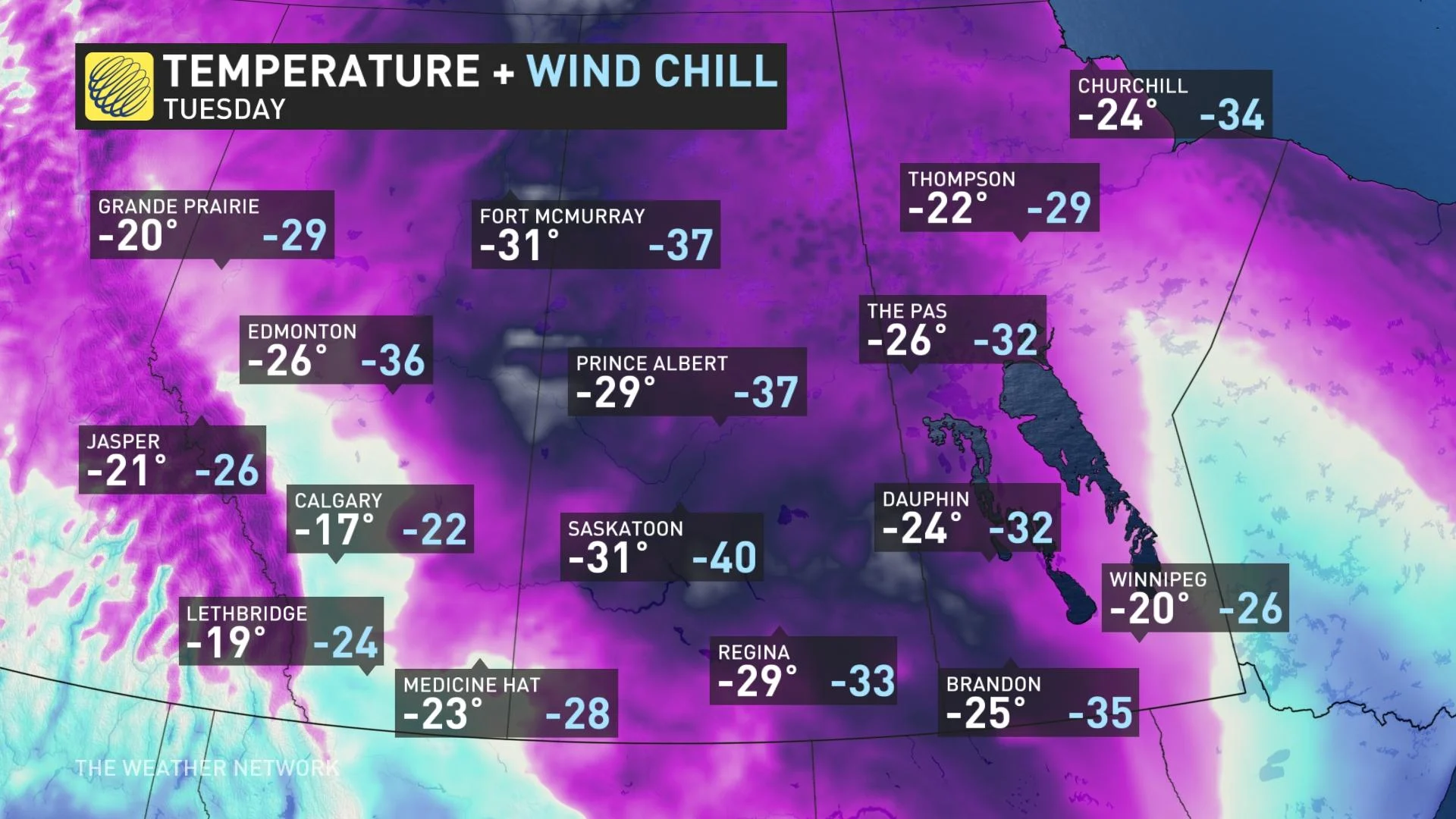
Frigid temperatures will push into Manitoba on Tuesday, as well, with high temperatures plummeting into the -20s for Winnipeg for the remainder of the week. Nighttime lows will dip into the middle -30s, with wind chill values pushing -40 or even lower.
Temperatures will warm slightly in Alberta, but it’s all relative when Calgary’s warmest high temperature this week will be a balmy -16°C on Thursday afternoon.
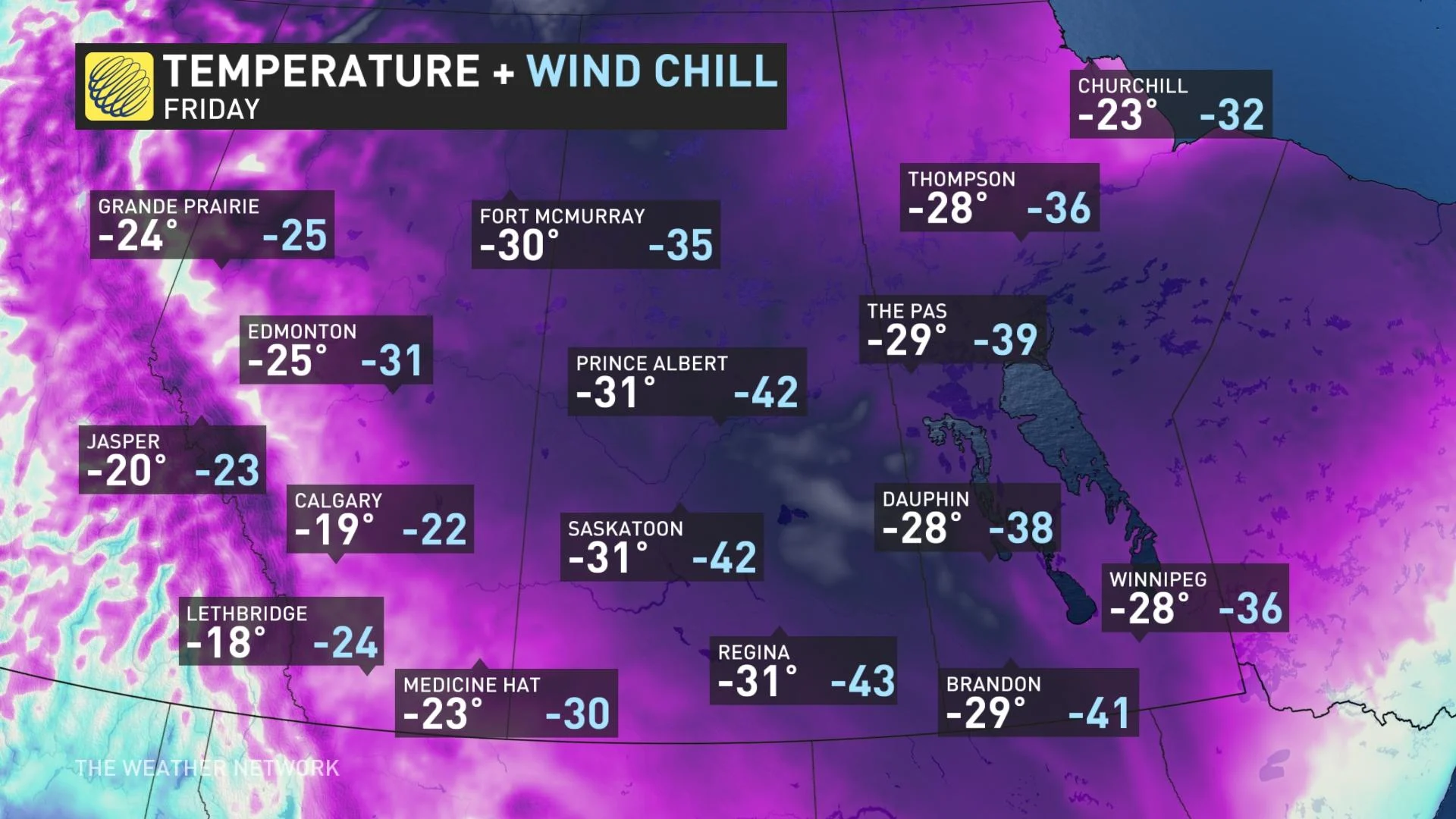
Extreme cold will remain a hazard all week. Significantly below-seasonal temperatures will persist on the Prairies into the beginning of January.
Thumbnail courtesy of Jenny Hagan
Check back for the latest on the dangerously cold air spilling over the Prairies.










